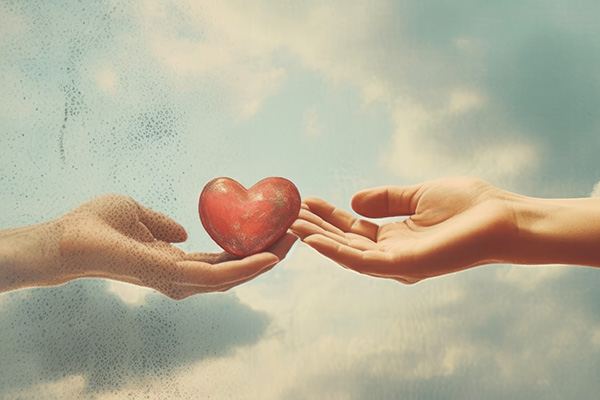empath
Shield Yourself From Energy Vampires
 People who are spiritually attuned can feel drained very quickly when they are around others who have a lower energy vibration. A client of mine recently asked why this happens. This is what Spirit revealed.
People who are spiritually attuned can feel drained very quickly when they are around others who have a lower energy vibration. A client of mine recently asked why this happens. This is what Spirit revealed.
When your heart center is wide open and vibrating with the Divine, and you encounter struggling souls who are stuck in the negativity loop of a lower-density reality, they can disrupt or even steal some of your energy. It’s like their batteries are leaking or not charging properly, and suddenly you feel drained faster than your tablet after a Netflix binge.
These folks are the energy vampires of the world. They’re the ones who haven’t quite mastered the art of recharging themselves. Instead, their starved auras latch onto others, sucking out good vibes like it’s happy hour at a juice bar. And then their negativity rubs off on us more sensitive, empathetic, intuitive types.
This is especially true lately with everything being so shaky and chaotic in our world. Seriously, just look at what a lot of people are posting on social media platforms these days. It’s like we’re drowning in a sea of ego, narcissism, ignorance, and evil.
Everyone seems to be obsessed with things that don’t matter in the grand scheme of things. And let me tell you, being around that kind of energy drain is like trying to swim in metaphysical molasses!
But here’s the good news: often the best antidote is simply to “be,” to soak up the stillness and let our minds do their thing. So, take a deep, mindful breath, smile, and bask in the sweet, sweet bliss of your inner love and light. Whenever you can, reconnect with your soul and dive deep into the serenity of solitude and silence.
An Empath’s Intervention Can Save A Life
 This morning after I finished meditating, instead of logging on to work as usual, I felt intuitively guided to visit a local coffee shop that I had visited a few days before.
This morning after I finished meditating, instead of logging on to work as usual, I felt intuitively guided to visit a local coffee shop that I had visited a few days before.
While I was there I had noticed a girl working there who seemed extremely sad. Her aura clearly showed me this. I also intuitively saw that she had probably been crying before she came in that day.
While waiting for my order, I tuned into her energy field to see what information I could get to help her, even indirectly. Normally I would not do this in public, but this poor girl really tugged at my heartstrings for some reason.
I immediately had more intuitive flashes about her and her boyfriend. I saw him being very mean, controlling and abusive to her, and also cheating on her with numerous women.
I also realised that she was living with him instead of him. I had a strong feeling that if she stayed there with him, things would get really bad in the long run – to the point where she might even have to go to a refuge for victims of domestic violence.
But as we did not know each other, I did not feel it was my place to interfere by giving her unsolicited advice. Nor did I want to embarrass her or myself! So I just prayed for her in silence and sent her some healing energy, but kept my premonitions and insights to myself.
Energy Self-Care Strategies For Empaths And Sensitives
 Empaths and highly sensitive people (HSPs) often feel drained by other people and certain environments due to their inherently sensitive nature and the way they interact with the world around them.
Empaths and highly sensitive people (HSPs) often feel drained by other people and certain environments due to their inherently sensitive nature and the way they interact with the world around them.
We face unique physical, mental, emotional and spiritual challenges because of our innate ability to deeply feel and absorb the thoughts, emotions and energies of those around us. While our sensitivity is a blessing and a gift to the world, it can also become a curse through overwhelming experiences of empathic overload and energy depletion.
Energetic self-care is therefore of paramount importance to the sensitive person. Every empath or HSP should adopt a daily routine of energetic self-care practices designed to cleanse, protect and rejuvenate their aura or personal energy field.
Mastering these practices is not only beneficial to our health and well-being, it’s essential for maintaining holistic balance, protecting our mental health in particular, and nurturing our deep connection to the world and those around us.
As empaths and HSPs, we can manage our energy more effectively by employing several strategies that help us maintain our energetic well-being, while navigating a world that can often feel overwhelming. The following are essential tools and strategies that can empower empaths and HSPs to thrive in their sensitivity and turn their deep empathy into their greatest strength through effective energetic self-care:
Why Do Empaths And Sensitives Often Feel Drained?
 Have you ever left a meeting or social gathering feeling completely drained or energetically depleted?
Have you ever left a meeting or social gathering feeling completely drained or energetically depleted?
Or maybe you’ve walked out of a store or other public place and noticed that you were short with your loved ones and irritable? Or you come home in the evening feeling sad or depressed for no apparent reason, after starting the day feeling cheerful and happy?
If this happens to you often, it is very likely that you are an empath or a highly sensitive person.
Empaths and highly sensitive people (HSPs) often feel drained by other people, social gatherings, crowds and certain environments due to several key aspects of their inherent nature and the way they interact with the world around them. Here are the major reasons for this phenomenon:
Genetic predisposition: Research suggests that the trait of high sensitivity is influenced by genetic factors that affect how individuals process sensory information and emotional stimuli. A key aspect of this genetic influence is the way the brain processes serotonin, a neurotransmitter that helps regulate mood, appetite, sleep, and sensory perception. Variations in genes related to the serotonin transporter have been linked to differences in emotional reactivity and sensitivity to the environment. Studies have shown that individuals with certain variations of these genes may exhibit traits consistent with high sensitivity, such as deeper cognitive processing of sensory information, higher emotional reactivity, and increased empathy.
Anger Awareness For The Empowered Empath
 Of all the emotional energies that empaths have to deal with, anger is one of the most powerful and potentially destructive, because empaths feel and react first, and think later.
Of all the emotional energies that empaths have to deal with, anger is one of the most powerful and potentially destructive, because empaths feel and react first, and think later.
An empath’s initial reaction to someone else’s angry feelings is usually some form of intense “fight or flight” response.
The more extroverted empath will often respond to the anger with equal force, usually involving a very intense and potentially catastrophic emotional outburst. The introverted empath will usually “flee” the scene or do everything possible to avoid the person who is emitting the anger.
After the initial reaction, the empath’s emotional state will often then shift to sadness, anxiety, or feeling drained and depressed at seemingly inappropriate times and for no apparent reason.
Because it is very common for empaths to be intensely aware of the feelings, moods, and motives of others, sometimes even before others are aware of their own feelings, a strong emotion like anger deeply affects us. And if the other person is a spouse or partner in a romantic relationship, anger can become a proverbial land mine. Ditto if it is a co-worker or employer.
Embracing The Gift Of Empathic Insight
 Being attuned to the emotional energies of others is a beautiful gift that many spiritual individuals discover and enhance along their spiritual journey. This gift facilitates connection with others and provides insights into both others and ourselves.
Being attuned to the emotional energies of others is a beautiful gift that many spiritual individuals discover and enhance along their spiritual journey. This gift facilitates connection with others and provides insights into both others and ourselves.
While this empathic ability can bring profound understanding, it can also lead to anxiety. Feeling others’ emotions deeply may prompt self-reflection, causing concern about the impact of our actions on others and fear of judgment. Societal pressures become more intense, especially when expressing unconventional opinions, making those on a spiritual path feel isolated or misunderstood during a spiritual awakening.
How can we balance this empathic insight with personal expression and development?
Navigating meaningful relationships becomes challenging as our perspectives expand. Striking this balance requires self-reflection and working towards a more whole and heart-centered way of living.
Maintaining an open mind while expressing our own understandings is like a tightrope walk. We don’t want to become closed-minded, yet we need to articulate our perspectives and advocate for what we believe is right. A spiritual life is a journey of constant growth and understanding. Plateaus and challenges are part of the path, requiring breakthroughs to overcome.
